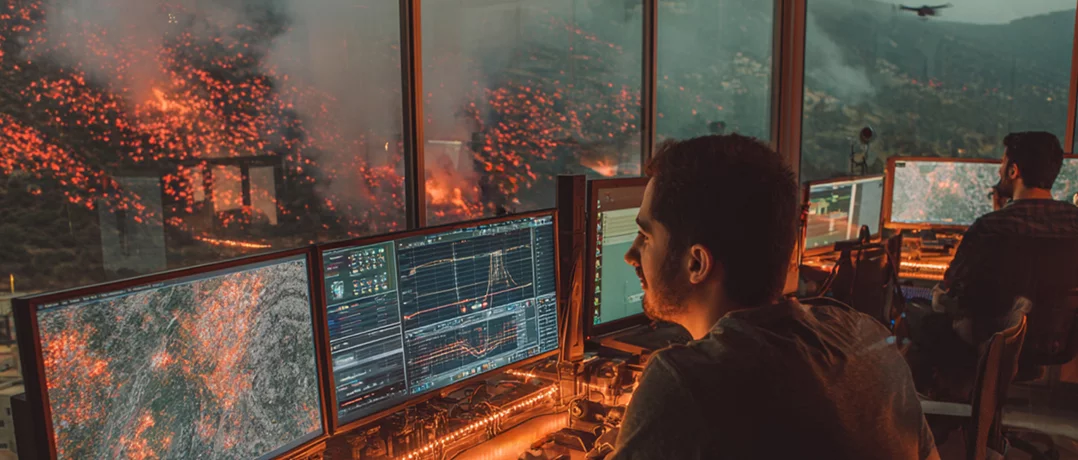LAU students developed a real-time wildfire detection system to help Lebanon fight recurring forest fires.
Lebanese students build real-time fire detection system using satellite data
Lebanese students build real-time fire detection system using satellite data


In a country where wildfires have become a seasonal threat, a group of Lebanese engineering students is turning innovation into protection.
A team from the Lebanese American University (LAU) has developed an advanced fire-detection dashboard that can identify wildfires in real time using satellite data. The system, created by Joya Maria Saade, Christopher Zein, Georges Barhouche, and Joey Angeli, under the mentorship of professors Zahi Nakad and Gilbert Accary, marks a promising leap in Lebanon’s fight against recurring forest fires.
According to team member Christopher Zein, the idea was sparked by an existing regional model. “The project was inspired by the Cyprus Fire Detection System. After learning about its success, President Abdallah proposed creating a local version for Lebanon,” Zein said. “Lebanon experiences frequent and devastating wildfires every summer, yet no centralized early warning system had ever been implemented. We saw this as an opportunity and a responsibility to use technology to serve our country.”
The platform integrates live data from EUMETSAT and NASA’s FIRMS satellites, updating every few minutes to pinpoint fire locations across the country. Once a fire is detected, municipalities and first responders receive instant alerts detailing the exact coordinates, intensity levels, and live dashboard visuals.
Developing the system came with its own hurdles. “Our biggest challenge was obtaining accurate and reliable fire data specifically for Lebanon,” Zein explained. “Many global fire datasets don’t capture smaller fires effectively, especially in mountainous regions like ours. To overcome this, we integrated data from multiple satellite sources to improve both accuracy and detection speed.”
The project’s beta version has already been delivered to the Lebanese Civil Defense, signaling a potential breakthrough in how Lebanon monitors and responds to wildfires. If adopted nationwide, the technology could transform early intervention efforts and help preserve Lebanon’s forests, which have suffered massive losses in recent years due to delayed response times and limited resources.
“We hope this system will transform wildfire response from reactive to proactive,” Zein added. “This is only the beginning. In the next phase, we plan to enhance the system with advanced image processing and thermal analysis, so it can better distinguish real fires from false alarms.”
By combining local ingenuity with global satellite technology, these students are showing how innovation can become a tool for protection and change.


